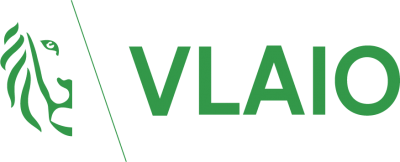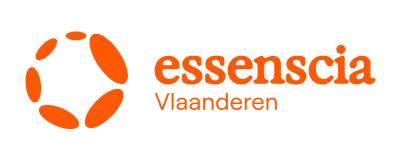Topics
We organise our actions in six thematic & strategic agendas:
Strategic Agendas:
Bio-economy
Circular Construction
Chemicals/Plastics
Manufacturing Industry
Food Chain
Water Cycles
Seven leverages provide additional support:
Leverage effects:
Lever Policy Instruments
Lever Circular Procurement
Lever Communication
Lever Innovation & Entrepreneurship
Lever Financing
Lever Jobs & Skills
Lever Research
What, why and how?
Why are we pursuing a circular economy?
Future visions 2050
How do we see our circular future?
About our management
Who steers what at Flanders Circular?
FOOD ACT 13
A city that undertakes and shares circularly
Food Act Kortrijk was a food aid network active in Kortrijk since 2014. It operated on a very small scale: surpluses were collected from about five retailers and redistributed to Kortrijk welfare organisations on a daily basis via a weekly schedule. However, there was no refrigerated transport or storage facilities. The supply was limited to vegetables, fruit, bread and dry food.
Thanks to the help of Flanders Circular, OCMW Kortrijk wanted to scale up this local initiative to a new distribution platform for food surpluses in the entire South-West Flanders region: Food Act 13.
This upscaling resulted in successful regional cooperation between 14 local authorities and 90 buyers. Food Act 13 now forms a network of 14 OCMWs and 13 structural partners of which Voedselbank West-Vlaanderen is the most unique.
Additional objectives, such as the valorisation of meat and fish surpluses from the retail sector or research into food surpluses in OCMW kitchens, were also achieved.
OCMW Kortrijk
Partners Voedselverdeelorganisaties in Kortrijk Delhaize
Sectors
Themes
Organisations
Website
MOST IMPORTANT
RESULTS
- We succeeded in organising a professional operational distribution of food surpluses in South-West Flanders.
- The expertise gained from the local initiative was successfully integrated into the regional Food Act 13, creating growth opportunities for 14 local authorities in the South-West Flanders region. With this know-how, we created a brand name that inspires confidence among both suppliers and customers.
- We were able to convince retailers to also reuse meat and fish surpluses. We drew up a guide and used good practices that convinced Colruyt, Aldi and Lidl, among others, to work with us. This guide is also useful for other food aid organisations.
- We conducted research into food surpluses from PCSW commercial kitchens and developed an awareness-raising policy that resulted in fewer losses and a new way of working to give the surpluses to users.
MOST IMPORTANT
LESSONS LEARNED
- Upgrading Food Act Kortrijk to Food Act 13 was a major organisational challenge. We had to harmonise visions in terms of content. We created a coherent personnel policy that integrated Food Act Kortrijk's expertise. The logistic part, the transfer of material and finding a location were not easy either.
- The scaling up significantly increased our results and efficiency: the number of shops we worked with grew, the number of kilos collected increased spectacularly, the number of customers rose and we reach some 7,500 families in poverty every month.
- We also achieved positive results in the employment of people who are far removed from the labour market. For instance, we went from 2 to 16 apprentices in activation projects. The outflow to the normal economic circuit is 35% six months after the end of employment with Food Act 13.
WHAT DOES
THE FUTURE HOLD?
For Food Act 13, an investment of EUR 300,000 meant a result of about 300,000 kg of food surplus that would otherwise have ended up in the rubbish.
The continued financing of Food Act 13 after 2020 is the biggest challenge. The benefits lie mainly in the social added value, the financial return is almost non-existent. The question is whether Flanders can continue to support such projects financially and structurally.

















